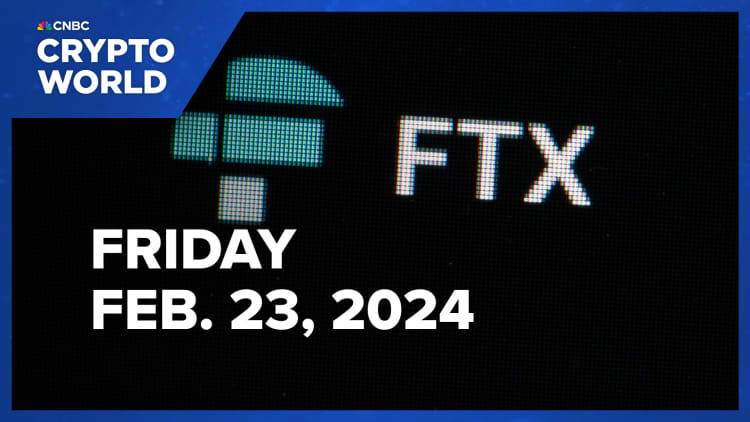
It’s been almost a year since AI’s bloom last spring, recalling another flowering: The “tulip mania” of the Dutch Golden Age, one of the most infamous examples of a financial bubble in economic history. But will ChatGPT blossom, with ramifications for any worker’s job, or will it wither as the petals fall off the proverbial plant?
Even if people are mixed on whether AI will take your job or enhance it, one thing is becoming clear: Managers are starting to pit these innovations against disenfranchised workers.
Look no further than IBM, whose shares have soared by nearly 17% since the beginning of the year—a boon attributed in part to the company’s adoption of AI. IBM CEO Arvind Krishna has been open about the fact that many jobs at IBM can be partially or completely replaced by AI, even writing in an April commentary piece for Fortune that he had used AI to reduce the number of employees working on relatively manual HR-related work to about 50 from 700 previously, which allowed the company to focus on other things.
But Krishna is a bit mixed on the topic, having flip-flopped from saying certain roles would be replaced by AI to declaring that AI will generate more jobs than it eliminates. That’s all to say, the jury is out on how the decision-makers will eventually greet and implement AI.
However, bosses are considering following IBM’s lead, a massive survey suggests: A whopping 41% of managers say they’re hoping to replace workers with cheaper AI products this year, according to a survey of 3,000 managers by software company beautiful.ai.
The report comes amid a groundswell of worker rage and instability. Employees haven’t felt this poorly about their jobs since this pandemic first hit, according to a survey from BambooHR. Struggling to make ends meet, many Americans have turned sour on the workforce and reported a loss in faith in almost every profession in the most recent Gallup Honesty and Ethics poll.
Wage growth has recently outpaced inflation, though after years of volatility it makes sense that many households aren’t feeling that data necessarily hit their wallets. While union popularity recently surged (amid UAW success stories and research regarding the financial impact of a union), membership is still at a record low after decades of decline. The struggle for greater pay and a livable wage is evident in the “hot labor summer,” as strike activity increased by 280% in just this past year.
But it seems as if some managers’ heads are being turned when the question becomes whether to give out a raise or hire a robot. In the new survey, almost half of managers (48%) reported that their companies would profit from replacing swaths of human workers with tools. And 45% said they saw these innovations as a chance to “lower salaries of employees because less human-powered work is needed.”
Are managers going sci-fi, or bystanders to the AI surge?
Of course there was a wave of paranoia when AI first began to go through its growth spurt in 2023. Rapid improvement and evolution caused many to shift in their seats as 61% of Americans believed new products could threaten civilization, per a Reuters/Ipsos survey.
As knee-jerk reactions to AI faded over the course of the year, new theories cropped up about AI’s trajectory. “No, it won’t replace you, but a human who could use AI better than you might,” became a popular take. Some suggested your danger of losing a job depending on your sector, level of seniority, or location of work. And junior workers, by nature of vulnerability, reported the greatest fear of losing their jobs to AI. Many employees look to learn more about the beast they fear (it’s the devil—or generative AI—you know), as 79% reported they wanted training in the area to consulting firm Oliver Wyman.
Consider Noah Smith, the influential economic writer who left his perch at Bloomberg Opinion to launch his own Substack, and Niall Ferguson, the Scottish economic historian who has held perches at Stanford and Harvard (as well as Bloomberg Opinion). They recently weighed in with their versions of the doomer vs. accelerationist debate.
“It’s very possible that regular humans will have plentiful, high-paying jobs in the age of A.I. dominance—often doing much the same kind of work that they’re doing right now,” Smith wrote on his Substack, prompting agreement and debate from a range of leading economists who talked to the New York Times’ Peter Coy. Ferguson had cold water to throw on this, saying, “…recent evidence about labor market shocks from automation and international trade suggests that the negative impacts of AI will be geographically and demographically concentrated, and labor markets in the hardest-hit places will not adapt smoothly.”
Even so, after investors have poured billions into AI, triggering comparisons to the stock market of the mid- or late-90s, Rana Foroohar of the Financial Times cautions we might be getting ahead of ourselves. Cautioning against the “inevitability” of AI changing the world, upending our jobs, or boosting productivity, she warns we are still at the early stage of innovation, and this will take decades to play out—and, of course, that the bubble could soon burst.
We’re in new territory, or shaky ground, if you take the experts’ mixed predictions for it. It all means managers likely don’t have the AI leverage they think they do to quash a potential worker uprising (if that’s what they wanted). And even if they did, managers might be better off worrying for their own roles. Those at the top might be more exposed to AI invasion, though by nature of making executive decisions are likely shielded from true vulnerability. And 48% of managers posited that AI tools were a threat to their salaries and will lead to wage declines throughout the workforce this year. Even more (50%) reported fear their management position would experience a dock in pay related to AI.
But most managers aren’t actually looking to have a fully robotic workforce. Rather, 66% of managers are looking to use AI tools to enhance their employees’ productivity. Only 12% of bosses said they’re using AI with the purpose of downsizing or spending less on their workforce. So managers might be bluffing or simply weighing their options right now.
“AI may not replace managers, but the managers that use AI will replace the managers that do not,” IBM’s chief commercial officer Rob Thomas said in a conference, according to TechCrunch. “It really does change how people work.”
Credit: Source link














